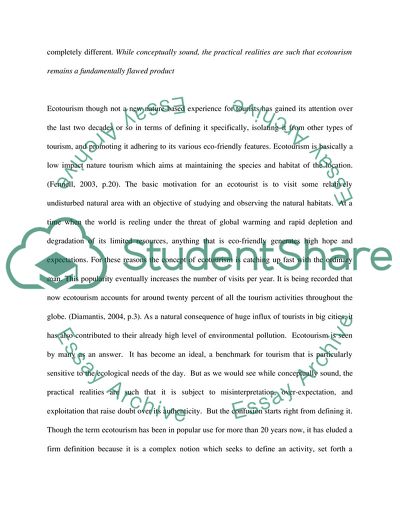Cite this document
(Why Ecotourism Remains a Fundamentally Flawed Product Coursework - 1, n.d.)
Why Ecotourism Remains a Fundamentally Flawed Product Coursework - 1. Retrieved from https://studentshare.org/tourism/1728211-while-conceptually-sound-the-practical-realities-are-such-that-ecotourism-remains-a-fundamentally-flawed-product-discuss
Why Ecotourism Remains a Fundamentally Flawed Product Coursework - 1. Retrieved from https://studentshare.org/tourism/1728211-while-conceptually-sound-the-practical-realities-are-such-that-ecotourism-remains-a-fundamentally-flawed-product-discuss
(Why Ecotourism Remains a Fundamentally Flawed Product Coursework - 1)
Why Ecotourism Remains a Fundamentally Flawed Product Coursework - 1. https://studentshare.org/tourism/1728211-while-conceptually-sound-the-practical-realities-are-such-that-ecotourism-remains-a-fundamentally-flawed-product-discuss.
Why Ecotourism Remains a Fundamentally Flawed Product Coursework - 1. https://studentshare.org/tourism/1728211-while-conceptually-sound-the-practical-realities-are-such-that-ecotourism-remains-a-fundamentally-flawed-product-discuss.
“Why Ecotourism Remains a Fundamentally Flawed Product Coursework - 1”. https://studentshare.org/tourism/1728211-while-conceptually-sound-the-practical-realities-are-such-that-ecotourism-remains-a-fundamentally-flawed-product-discuss.


